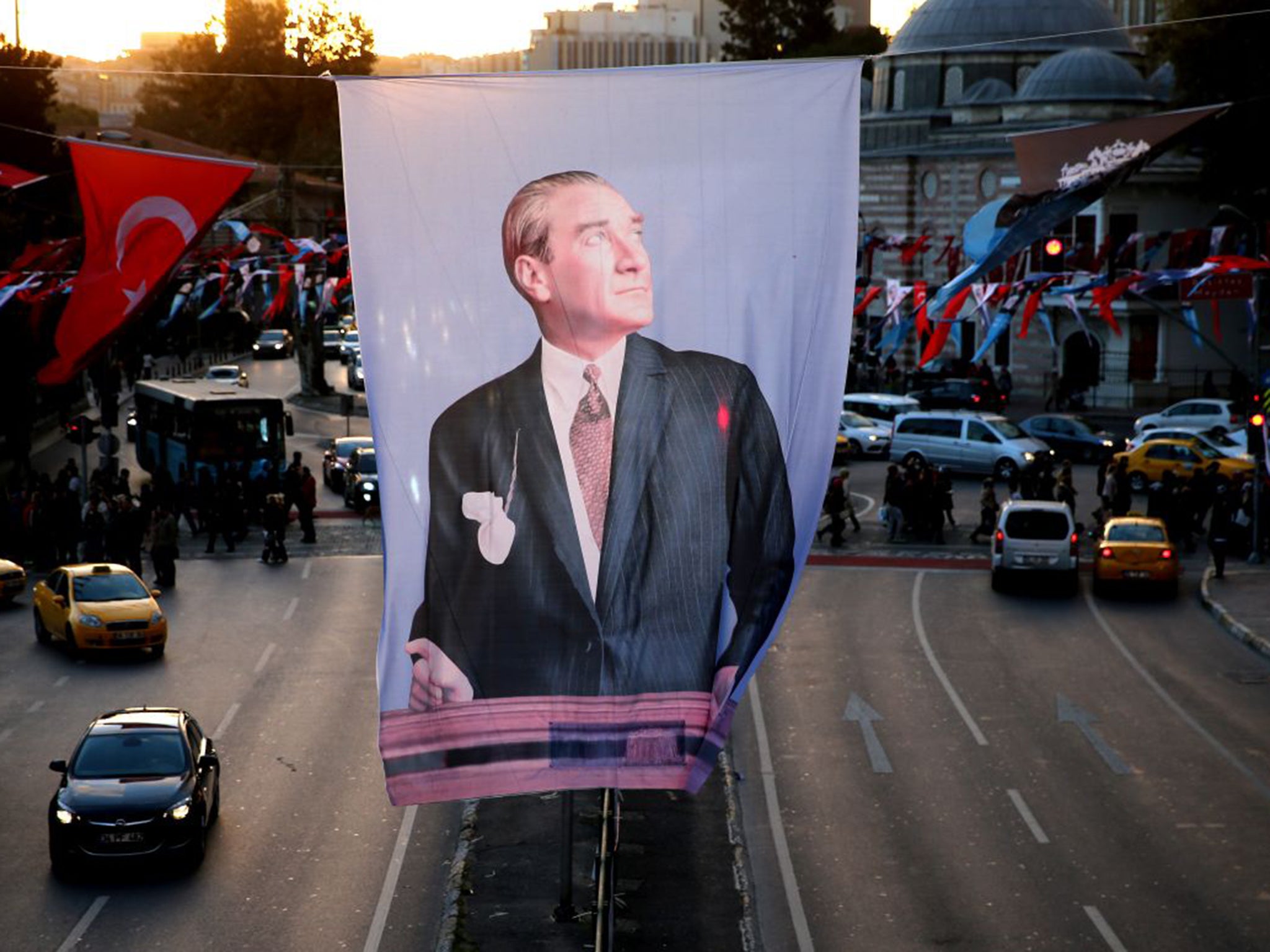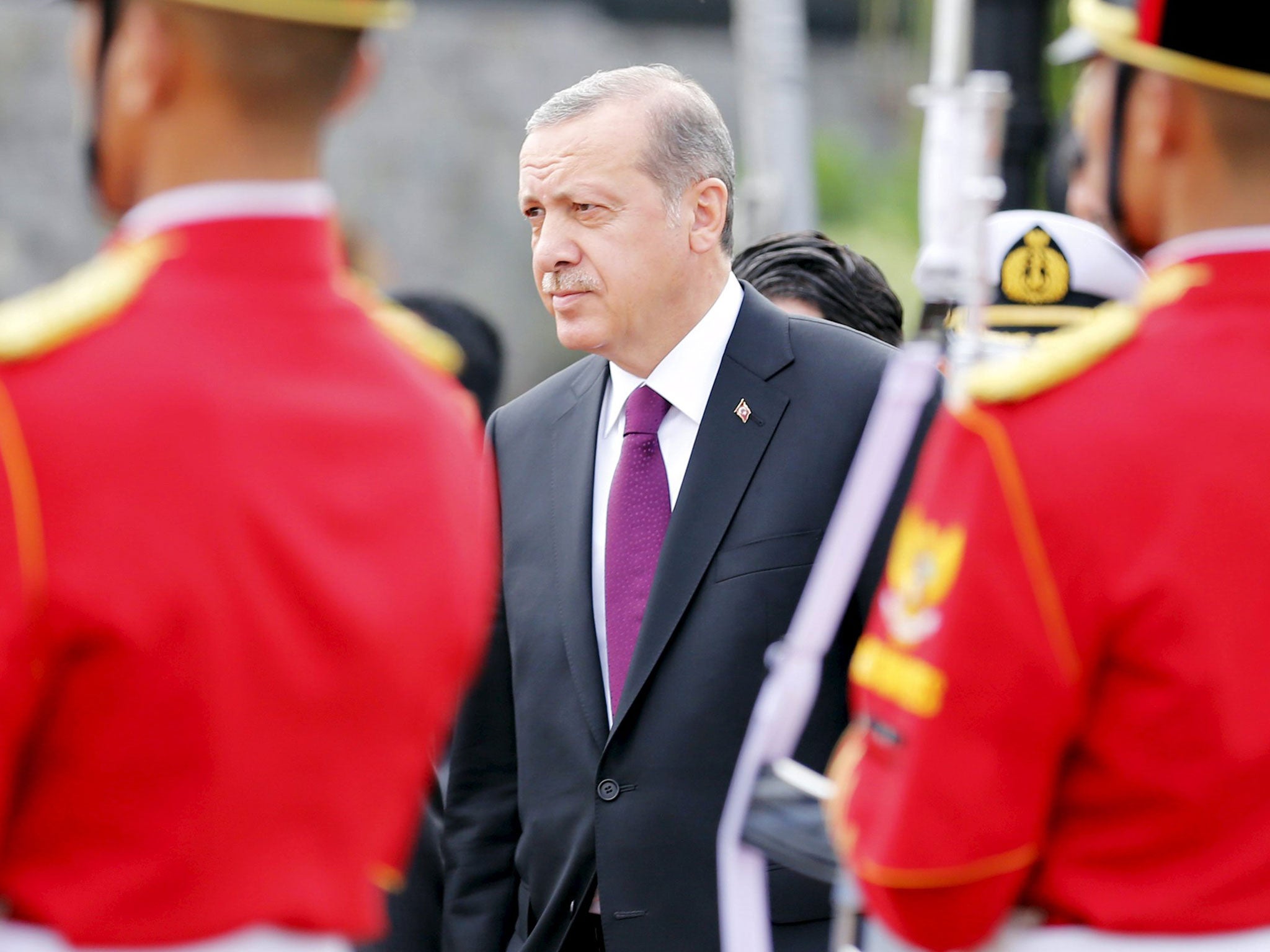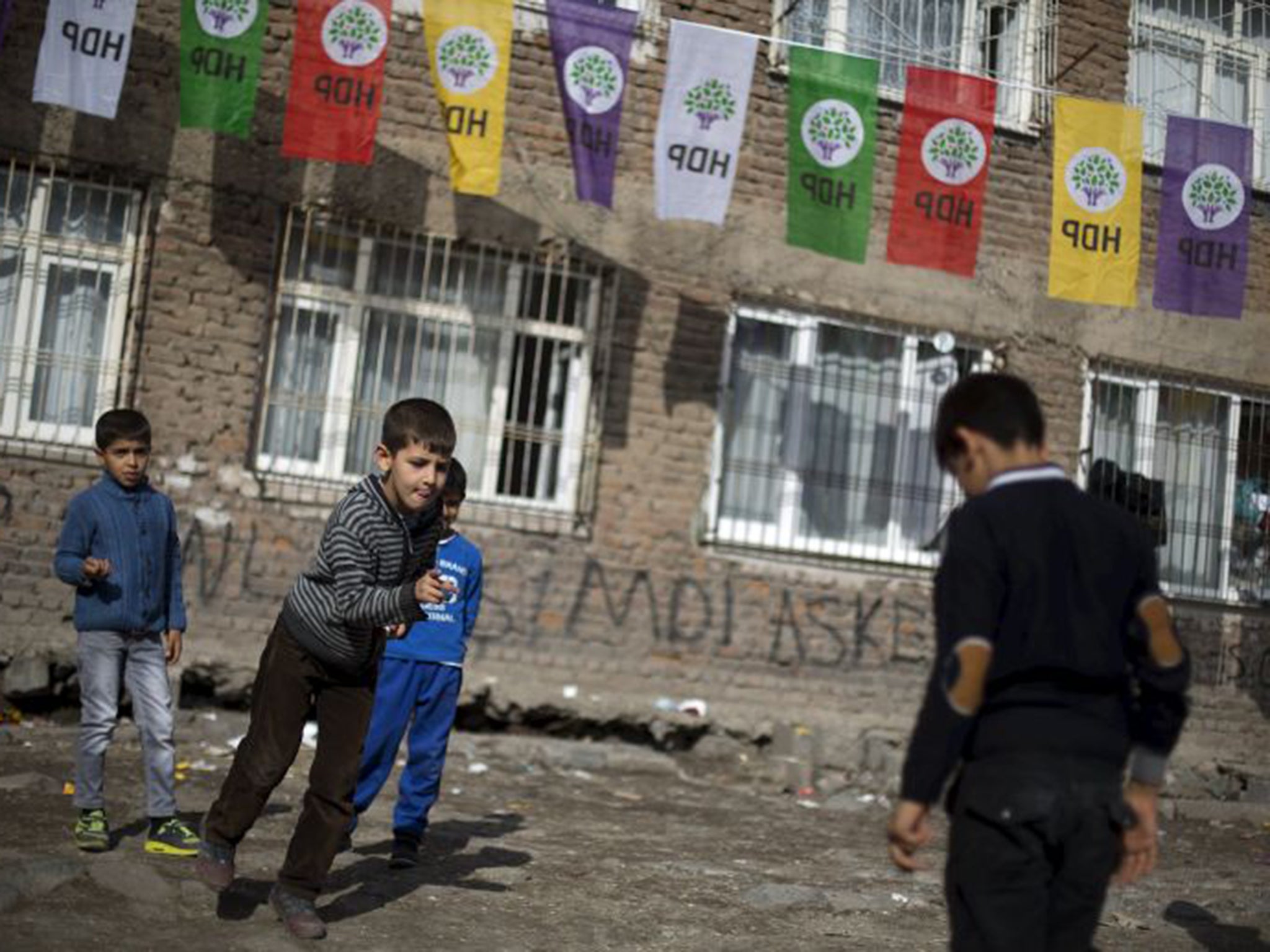Turkey elections: Can President Erdogan’s AKP confound the critics?
As Turkish voters head to the polls, Laura Pitel reports from Istanbul on a huge political gamble

Your support helps us to tell the story
From reproductive rights to climate change to Big Tech, The Independent is on the ground when the story is developing. Whether it's investigating the financials of Elon Musk's pro-Trump PAC or producing our latest documentary, 'The A Word', which shines a light on the American women fighting for reproductive rights, we know how important it is to parse out the facts from the messaging.
At such a critical moment in US history, we need reporters on the ground. Your donation allows us to keep sending journalists to speak to both sides of the story.
The Independent is trusted by Americans across the entire political spectrum. And unlike many other quality news outlets, we choose not to lock Americans out of our reporting and analysis with paywalls. We believe quality journalism should be available to everyone, paid for by those who can afford it.
Your support makes all the difference.Turkey’s Justice and Development Party (AKP) has been working hard in the Gaziosmanpasa district of Istanbul, miles from the tourist bazaars and coffee shops of the city centre, before the election on 1 November.
In the run-up to the second election in five months, the AKP had erected a campaign gazebo in the square, and was offering shoppers a free Turkish flag. A giant orange banner draped over an office block urged voters: “All together, with the love of the first day”.
It is places such as working-class Gaziosmanpasa, where the AKP vote fell by 10 per cent, which in June cost the party its parliamentary majority, for the first time in a 13-year dominance of the Turkish political landscape.
Following half-hearted coalition talks, the president and AKP founder Recep Tayyip Erdogan has gambled on fresh elections in the hope of regaining control. Ask passers-by about the direction Turkey has taken under his leadership and it can feel as if they are describing two different countries.
Devotees tell the story of a nation that has enjoyed dramatic changes to its economy, its global importance, and the rights of Muslims to practise their faith. Ismail – a retired shop assistant with a soft white beard who is handing out AKP balloons – said proudly that Mr Erdogan has enabled the country to “stand up tall”.

But critics do not mince their words. “He is a mafioso, a dictator who is a danger to our country,” spat Mustafa, who is backing the opposition Republican People’s Party (CHP). The stakes could hardly be higher, both for Mr Erdogan and for Turkey, a Nato member which acts as a buffer between Europe and the Middle East but is becoming increasingly unstable itself.
The conflict in Syria has spilled over with a string of suicide bombings blamed on Islamic State (IS). Cities in the south-east have become war zones after the collapse of a ceasefire with the Kurdistan Workers’ Party (PKK). A deeply polarised political climate is prompting older people to talk of a return to the days of the 1970s when tit-for-tat violence between leftist and rightist factions claimed around 25 lives a day.
At risk for Mr Erdogan, 61, is not only his political legacy but also potentially his family’s freedom. If his party is forced from power, opposition leaders will almost certainly seek to reopen a halted corruption probe against senior AKP figures and his 35-year-old son, Bilal.
Mr Erdogan has undoubtedly presided over a period of unprecedented stability and economic growth in Turkey.
“I think about where our country was 15 years ago,” said Sait, an estate agent. He gestured to the smart pedestrianised plaza and a new shopping centre across the road. “Now we have better schools, better roads. We are not a poor country any more.”
Legal reforms introduced by the Islamist AKP have given Muslims greater freedom to express their faith. Zehra, a 41-year-old teacher in a stylish navy trenchcoat and powder blue headscarf, cherishes her newfound right to wear Islamic dress to work after the lifting of a ban in 2013.
Such changes, however, have enraged secularists. Ayse, a self-declared “child of Ataturk”, the father of the Turkish republic, flew into a rage when asked about the AKP. Pointing out veiled women from the bench where she was taking a rest, she accused them of undermining the “modern” foundations of the state. Others are horrified by the authoritarian turn that the country has taken of late.
Mr Erdogan was badly shaken by nationwide protests in 2013, and threats from competing factions within the machinery of the state. Turkey now routinely blocks Twitter, purges unfavourable judges and arrests teenagers for insulting his office. “Have you seen the press freedom index these days?” asked Emrah, a farmer from the country’s strongly nationalist central region. “We’re listed near countries such as Libya and Iran.”
Perhaps the most dangerous development is the rise in ethnic tension between Turks and Kurds. It was partly the success of the Peoples’ Democratic Party (HDP), which won 13 per cent of the vote in the election (by appealing to a coalition of Kurds, liberals and minority rights activists), that cost the AKP its majority. Since then, the peace process has disintegrated. Mr Erdogan appears to have given up on Kurdish voters, instead belittling the HDP in the hope of winning back nationalists who fear Kurdish separatism.
This tactic, combined with a message urging voters to choose stability and continuity over growing chaos, may be enough for the AKP to regain a majority. Polls suggest it may improve on the 40.8 per cent it won in June.

Either way, the party that built its success on boosting living standards for millions in areas such as Gaziosmanpasa should be worried by the long-term impact of a flagging economy and the influx of 2.5 million Syrian refugees.
A rotund couple selling walnuts by the side of the road said that for the first time they would be voting for the leftist CHP, after years of supporting the AKP. “We like the President,” the husband says.
“But he’s made a mistake with Syria. All these people have come here. Our rent has gone up. Everything is so expensive. We’re going to try another party this time.”
Join our commenting forum
Join thought-provoking conversations, follow other Independent readers and see their replies
Comments